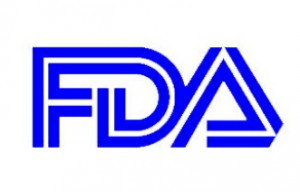There have been many recalls and some outbreaks linked to Listeria monocytogenes bacteria contamination in soft cheeses in the U.S. and around the world. Now the FDA has produced a draft assessment of the risk of consumers contracting listeriosis from soft-ripened cheese in the United States and Canada. The purpose of the draft is to evaluate the factors that lead to Listeria contamination in cheese, such as the microbiological status of milk, cheese manufacturing steps, and conditions during distribution and storage.
 The Listeria bacteria causes one of the highest hospitalization and death rates among all foodborne illnesses in the U.S. The assessment states that soft cheese made from unpasteurized milk has a high risk of contamination; in fact, those cheeses made from raw milk have a listeriosis risk 50 to 160 times higher than soft cheeses made with pasteurized milk. A Listeria outbreak last year in the U.S. linked to Frescolina ricotta salata cheese sickened 27 people and killed four in 13 states.
The Listeria bacteria causes one of the highest hospitalization and death rates among all foodborne illnesses in the U.S. The assessment states that soft cheese made from unpasteurized milk has a high risk of contamination; in fact, those cheeses made from raw milk have a listeriosis risk 50 to 160 times higher than soft cheeses made with pasteurized milk. A Listeria outbreak last year in the U.S. linked to Frescolina ricotta salata cheese sickened 27 people and killed four in 13 states.
The draft QRA will estimate the risk per serving of soft-ripened cheese and tests the effects of some alternatives on those risks. The comment period on the draft assessment runs from February 11, 2013 for 75 days.





Ricotta salata is not a soft nor a soft-ripened cheese nor an unpasteurized cheese. The inclusion of the Frescolina outbreak in that paragraph is either incredibly misleading or terribly misinformed.
Listeria is an incredibly serious pathogen, which, as illustrated in the Frescolina outbreak, can live on cheeses made from pasteurized milk, with low available moisture and relatively low pH. Sanitation is key, and if the FDA or this publication would actually like to combat illness from Listeria, increased sanitation standards and education must be promoted.
Actually, the ricotta salata in question was called “Ricotta Salata Soft” Lot (T9425). It’s made from ricotta, which is a very soft cheese. If the original ricotta is contaminated with Listeria, the ricotta salata will be too.